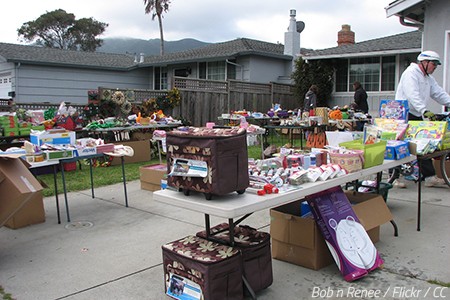If you’re planning a house move, then one of the things you should be interested in is how to pack your clothes for moving.
Of all the pieces of garments you own, your winter clothes will be the toughest ones to sort and pack. Why? Winter clothes tend to take up a lot of space due to their great volume, and space is usually rather limited during a move.
Now, packing winter clothes when moving house is quite similar to packing winter clothes for traveling, but it’s considered to be a more challenging task as a whole. The major reason for it is that, unlike packing a few sweaters and one extra jacket when going on a ski trip, you’re supposed to pack and move all your winter garments during a house move, especially when you’re moving to a cold state.
All in all, you’re going to need to know some neat tricks to save space when packing winter clothes for moving, thus making your house move more efficient. Also, you’ll want to make sure you’re following the best tips for packing clothes in order to ensure your winter coats, sweaters, hats, and gloves reach the new home perfectly intact.
So, what’s the best way to pack winter clothes for moving?
What to know before packing your winter clothes
There are a few important things you should be aware of before you start working on the clothes packing job. In fact, understanding the specifics of the upcoming task will help you speed up considerably the packing process without compromising the overall safety of the house move.
Winter clothes are not fragile at all
The good news when packing winter clothes for a move is that clothes are not fragile and therefore will not get damaged in any way if you accidentally drop on the ground a box full of clothes. Clothes are soft goods so they cannot possibly break the way household items made of glass, porcelain, and wood can.
This fact alone will reduce the pressure you must be feeling when packing up your warm clothes in terms of safety.
Winter clothes can be surprisingly heavy
Most of the clothes you will be packing for moving will be fairly lightweight, which is yet another bonus you should be glad about. However, the heaviest pieces of clothing you will need to box for safe transport will be your winter garments.
Winter coats can be surprisingly heavy because of the thick fur lining most of them have. As a rule, jackets made of thick leather tend to weigh more than jackets made of fabric.
Wool sweaters can also turn out to be heavier than you think, especially when they are crammed into a single large box.
Winter clothes take plenty of space
The bad news when packing winter clothes when moving house is that those garments will take up a lot of space inside the cardboard containers due to their great volume.
And this, in turn, will most likely force you to use more large packing boxes than you’ve prepared and to use proven packing techniques (including special vacuum bags) that will maximize the available storage inside the cardboard containers.
10 Ways to Stay Organized When You Move
What to do before packing your winter garments
Before you actually start transferring your winter clothes into boxes, there are several pre-pack tasks that you should complete first to ensure a problem-free packing experience from start to finish.
Sort out your winter clothes
Some winter clothes may not be worth the trouble to be moved to a new home.
The most important thing you should do when packing winter clothes for moving is to go through those garments and decide on a case-by-case basis whether to move each one or not.
If you’re moving to a warmer climate, then you won’t really need serious winter gear such as heavy fur-lined coats, wool sweaters, and thick hats and gloves. Since the climate in your destination area will be mild year-round, then you’d be better off getting rid of most or even all your winter clothes prior to moving out in order to save precious packing resources and of course – money.
On the other hand, if you’re moving to a cold state, then you’d want to pack and move all your winter garments. In this case, you should only get rid of the pieces that are too worn out or the ones you don’t plan on using anymore.
Sell or donate the clothes you don’t need
There’s really no point in wasting precious time packing and moving your winter clothes if you don’t intend to use them in the near future.
Once you’ve sorted out your clothes, you should have 3 piles of garments:
the ones you’re taking with you to the new home (to be packed soon);
the ones you’re NOT taking with you but are still in good condition (to be sold, donated, or given away to friends and family); and
the ones you’re NOT moving to the new house and that are in poor condition (to be thrown away for proper recycling).
Do the right thing and donate the winter clothes you won’t really need – there are people who will need them more than you do. Alternatively, you can decide to sell some of those winter garments, especially when they are very lightly used or never worn for that matter.
Prepare large cardboard boxes
Keep in mind that you should use large cardboard boxes for relatively lightweight items such as clothes and bedding, and small to medium boxes for fairly heavy things such as books.
So, make sure you have enough large moving boxes before you start packing your winter clothes. Also, some of your winter coats and jackets may be too expensive to risk any sort of damage by folding them up into regular cardboard boxes. In such cases, you should use specialized wardrobe boxes where you’ll be able to hang those valuable winter jackets and coats as if they were stored in your home dresser (wardrobe).
How to Get Rid of Stuff Before Moving
How to pack winter coats for moving
Now you should be ready to pack up your winter clothes. Let’s start with your coats and jackets.
Here’s the best way to pack winter coats for moving:
Your winter coats become a necessity when moving to a cold state.
BUTTON UP or zip up a winter coat to make it as compact as possible.
FOLD the sleeves of the coat in such a way as to form a rectangle. To do that, position the winter piece of clothing on a level surface (the bedroom bed, for example), fold each sleeve backward, parallel to the sides of the coat.
FOLD the entire winter coat in half so that its front is facing you.
ROLL UP the folded coat as tightly as possible in an effort to remove any trapped air inside the winter coat roll.
KEEP the hood of the coat (if it has one) extended until the roll is ready. Keep the hood open and tuck the clothes roll into it.
USE a couple of elastic rubber bands to secure the tight roll at each side and keep it from unfolding when being transported inside the packing box.
TRANSFER the rolled-up winter coat into a large cardboard box that’s been lined up with clean packing paper.
Alternatively, there are two other safe methods of packing winter coats for a move:
Pack coats inside a wardrobe box. If you own some expensive winter coats and jackets that you’d hate to see all wrinkled up due to the move, then you should pack those inside a specialized wardrobe box. It’s very simple: just take such coats out of the dresser and hang them inside the wardrobe box, with the hangers and everything.
Pack coats inside a vacuum bag. If you’re really worried that you won’t have enough space for your bulky winter coats, then you can shrink their overall volume by using a vacuum bag. A quality vacuum storage bag can help you save up to 80% of storage space once the air is sucked out of the bag.
How to pack sweaters for moving
The good news is that sweaters are even easier to pack for moving than winter coats.
Here’s the best way to pack sweaters for a move:
Make sure you’re only packing the sweaters you intend to wear in the near future.
PLACE a sweater on a flat surface – for example, on a table or on the bedroom bed.
CROSS the sweater sleeves across its back, forming an X.
FOLD the winter garment into two vertical lines while keeping the X-crossed sleeves inside.
ROLL UP the sweater tightly by starting from the bottom and going all the way to the neck.
USE a couple of elastic rubber bands on each end to fix the sweater roll and keep it from unfolding while in transit.
TRANSFER the rolled-up winter sweater into a large cardboard box pre-lined up with clean packing paper.
When you’re packing extra delicate sweaters (cashmere sweaters, angora sweaters, etc.), wrap the resulted clothes roll in clean and soft packing paper for extra protection. Use pieces of tape over the paper roll to keep it in place.
Again, as was the case with packing winter coats and jackets for moving, you can decide to pack the most voluminous sweaters you own into vacuum storage bags to reduce significantly the volume of the packed winter pieces of clothing.
How to pack winter hats, scarves, and gloves for moving
Packing winter hats, scarves, and gloves for a move is pretty straightforward so you shouldn’t have any problems in completing the task in zero time. There are just a few things to bear in mind when doing so:
Pack all small winter accessories such as hats, scarves, and gloves into a medium size box pre-lined with clean packing paper.
Remember to label the box appropriately so that you can identify it quickly after the move.
Be sure to set aside a winter hat, a pair of warm gloves, and even a woolen scarf for each family member for Moving day if you happen to be moving in winter.
How to pack bulky winter clothes
Consider using vacuum storage bags to reduce the volume of your winter clothes.
As mentioned earlier, winter clothes can be rather bulky and that can easily turn into a serious issue during a house move due to the restricted storage space. And this is exactly why you should seriously consider using vacuum storage bags to pack your winter garments into.
Vacuum bags are also known as compression bags and they have a valve on one side where you should fit either a vacuum hose or a hand pump to suck the air from the storage bags. Without air inside, the collective volume of the bulky winter clothes will shrink greatly, turning the newly-formed compact bundle much easier to fit into smaller spaces.
Most vacuum storage bags on the market today claim to reduce the volume of soft and voluminous items up to 80%. However, you should consider the whole operation successful if you can manage to reach 50% less volume of your bulky winter clothes.
All in all, packing winter clothes for moving is a pretty straightforward task… unless you have very little time to prepare for Moving day. When pressed by time, your best bet is to trust professional packers with packing efficiency that still remains unrivaled.
Packing Checklist: Packing Timeline for Moving
The post How to Pack Winter Clothes for Moving appeared first on The Moving Blog.







